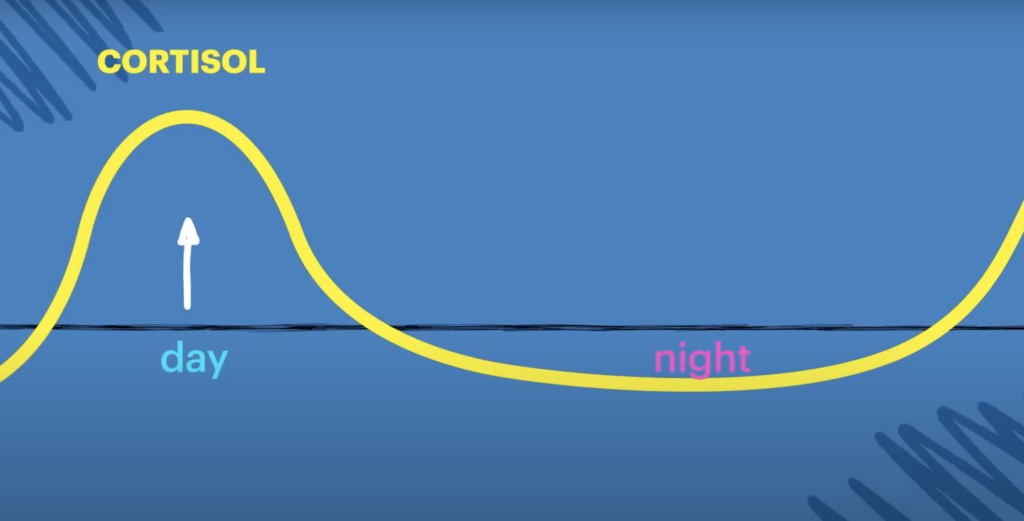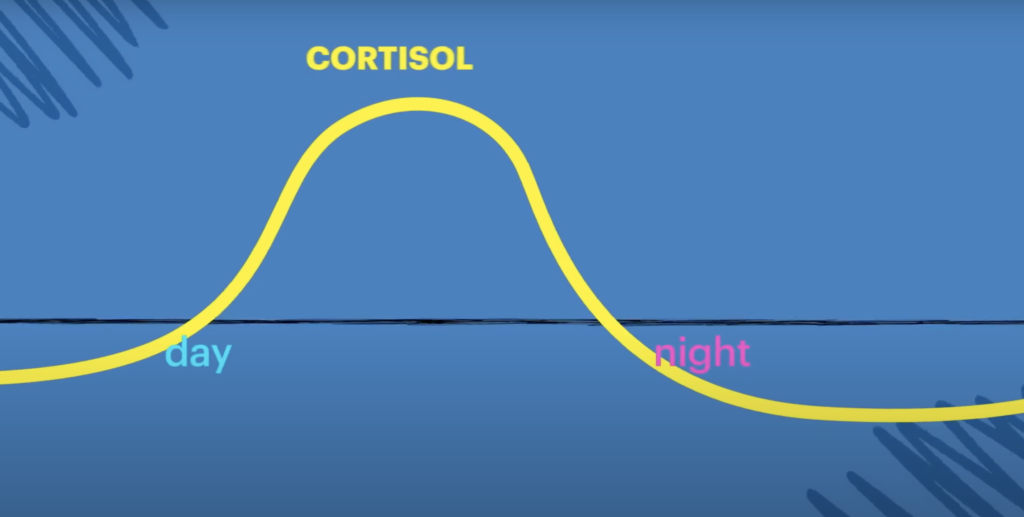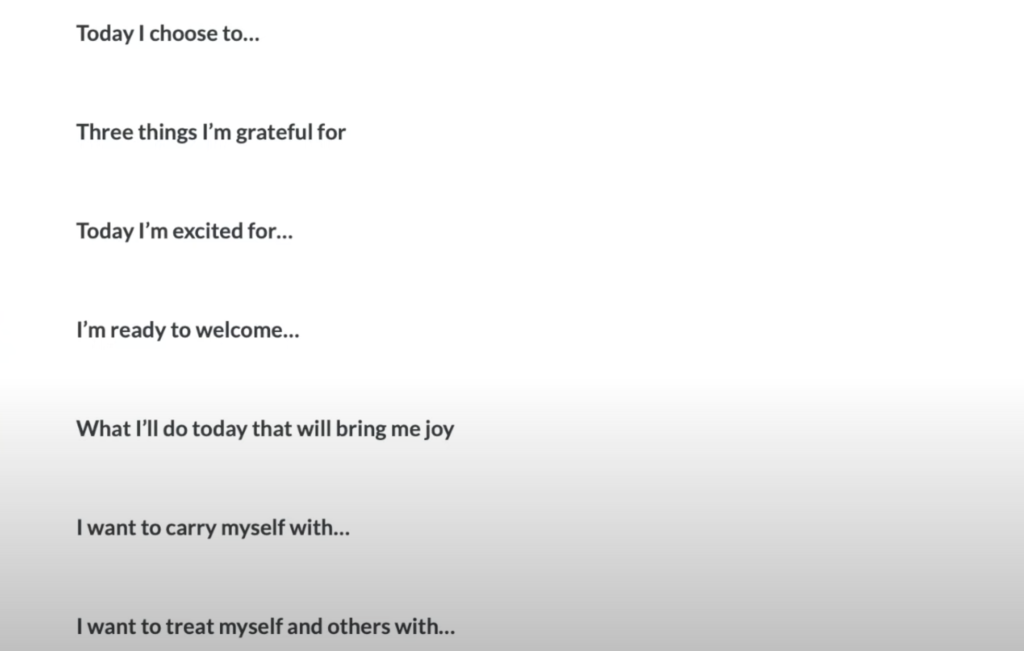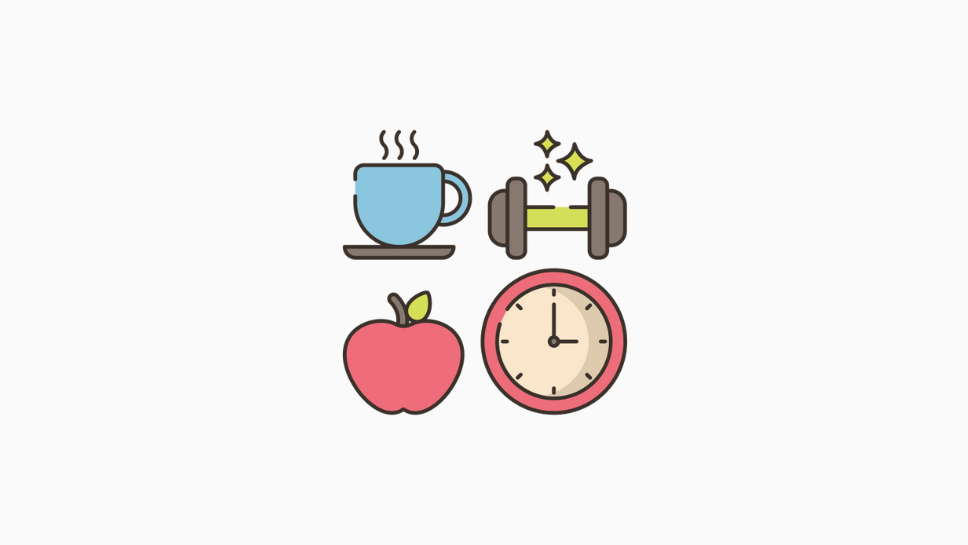Table of Contents
I used to be the sort of person who struggled to wake up and get out of bed in the morning.
I’d hear my alarm, hit snooze multiple times, and only roll out of bed when I really had to.
This often meant rushing to get ready and barely making it to wherever I needed to be. School. A lecture. A meeting. Literally everything.
Every morning I was in panic mode.
I started the day stressed, anxious, and mentally unprepared for the day ahead. And the worst thing? I did this every single morning for a decade.
BUT, things are different now.
And the turning point was reading the book Make Your Bed by William McRaven. And one of the key points made is that small, daily actions at the beginning of the day can steer your life in a completely new direction.
To begin with that just meant making my bed every morning. A small win, sure, but it gave me a sense of accomplishment and helped me to kick-start my day.
From there, my mornings started to evolve, I began incorporating other healthy habits, all backed by science. Little by little, my stress levels dropped, and I shifted from just getting through the day to really making the most of it.
Fast-forward to now, my morning routine is like my secret weapon. It’s my time for growth, for mental and physical prep, and it’s a daily reminder that I can tackle anything the day throws at me.
⏳ Consistency
The cornerstone of any good morning routine, mine included, is consistency. It’s not about rising with the birds or beating the sun – it’s about getting up at the same time every day.
I personally roll out of bed at 5am, but that’s just my thing. You do you. Whether you rise at 7am, 8am, or even 9am doesn’t make you any less disciplined or successful, as long as it’s consistent.
And, there’s a ton of science to back this up.
One study that looked at more than 60 Harvard students for one month found that the students with the most consistent wake-up hours “performed better” compared to those who chose to mix it up, even though they were getting the same amount of sleep in general.
The study also found that this consistency helps to set a steady rhythm for our body’s internal clock. Basically, it has a huge number of positive effects on our metabolism (i.e. how our body uses energy), hormone regulation (so, those little chemical messengers that play a huge part in our mood, appetite, sleep, etc), and our general feeling of well-being.
The time itself doesn’t need to be exact or early. It just needs to be more or less the same every day.
And if getting out of bed at the same time every day is something you struggle with, there are three things that I find particularly helpful:
- Go to bed at the same time, making sure we give ourself an adequate amount of time to sleep. Which for most people is around 7.5 to 8.5 hours per night.
- Reduce the friction of getting out of bed by preparing things the night before. For example, before I get into bed I lay out the clothes that I’m going to wear the next day, I write a to-do list and leave it on my desk, and I also write out my daily #1s (which are the most important things I’m going to do the next day for my health, wealth, and relationships).
- Put your alarm on the other side of the room. That way, when it goes off, you’re forced to get out of the bed to turn it off and you remove the temptation of doom scrolling on your phone in bed when you first wake up.
❄️ Cold Water
Once I’m out of bed the first thing I do is grab a glass of cold water to drink.
You see, after a long night’s sleep, our body is actually slightly dehydrated. So when we drink that glass of water, it’s like sending an invitation to our body to wake up and start working at its best – our metabolism, cognition, immune system, everything gets a nudge.
In fact, even mild dehydration of just 1–2% of our body weight can affect our altertness, memory, concentration and even physical performance. So, sipping water first thing in the morning isn’t just refreshing – it’s a quick pick-me-up for your body and brain.
The other thing I like to do to help my body wake up is to take a cold shower.
Now, some of you probably think this sounds crazy, but there’s actually a bunch of evidence that suggests it’s a great way to start our day.
One really fascinating study, for example, discovered that getting into cold water can ramp up our metabolism by a whopping 350%, boost the epinephrine in our blood by 530%, and jack up dopamine levels by 250%, that’s akin to the dopamine surge triggered by something like nicotine.

So, a cold shower basically nudges our body into action, triggering all those vital functions that help us feel alert, cheerful, and geared up for the day ahead.
And part of the magic of this is down to how our body temperature controls our sleep-wake cycle or, as it’s also called, our circadian rhythm.
You see, every morning, as part of our natural wake-up routine, our body temperature begins to climb. This uptick in warmth acts like our own inbuilt alarm clock. It boosts our alertness, sharpens our focus, and gets us all set to take on the day.
So, anything we can do to increase our body temperature in the morning will help us to feel more awake. And, surprisingly, that’s exactly what cold showers do. They help our body to warm up and, therefore, wake up too.
☀️ Cortisol
After my shower, the next step is to get out the house.
The idea is that we want to get some natural light in our eyes within an hour of waking up. Even if there’s dense cloud cover or still relatively dark, there’s still more photons reaching our body than there are coming from artificial lights.
So, we want to try and spend at least 10-20 minutes outside every morning when we wake up. And the main reason for this is that it helps modulate the timing of what’s called the ‘cortisol pulse’.

Basically, cortisol – which is often called the ‘stress hormone’ – plays a big role in waking us up in the morning by giving the body a natural boost in energy at the start of the day. This is what we mean by a cortisol pulse.
It helps to set our temperature rhythm in motion, it sets our level of alertness, increases our focus, and boosts our mood. And ideally we want this cortisol pulse to happen as early in the day as possible, which is triggered by bright, natural light.
Now, the problem is that without a decent morning routine, we’re actually late-shifting our cortisol pulse, which has a bunch of negative effects on our brain and body.

For example, if we’re the sort of person that wakes up late, then spends a couple of hours on our phone or laptop in bed with the curtains closed, then we’re not really going to get this cortisol boost.
If we then decide to go out the house at lunch time, that’s when we’re going to experience our first proper spike in our cortisol levels, which means our temperature rhythm and other internal mechanisms are going to be shifted late. As a result, our body feels massively off kilter, which leads many people to feel depressed and anxious.
While there are other benefits of early morning sunlight, such as boosting our dopamine and testosterone levels, the main benefit is ensuring our cortisol boost is aligned correctly with our circadian rhythm which helps us to feel better for the entire day.
🏃 Cardio
Now, my favourite part of my morning routine is exercise.
So, I’m currently training as a hybrid athlete, which means I’ll normally run to the gym via a local park, before doing some resistance training for 45 minutes to an hour.
And while there are clearly a bunch of physical benefits of working out, I find that having some form of exercise in my morning routine helps me to feel mentally prepared for the day.
In particular, when we increase our heart rate, we’re increasing blood flow and, therefore, oxygen delivery to our muscles and tissues. As a result, any remaining adenosine in our body – a natural compound that builds up in our body that make us feel tired and sleepy – gets cleared out.
It’s like opening up the windows and letting in fresh air to rejuvenate the space.
You see, exercise stimulates the release of neurotransmitters like dopamine and norepinephrine, which have an inhibitory effect on adenosine receptors in our brain. This means that these neurotransmitters bind to the receptors and prevent adenosine from attaching to them. As a result, the feelings of fatigue and drowsiness associated with adenosine are reduced, and we experience a surge of energy and mental clarity.
I also find that exercise is one of the bigger tasks on my daily to do list, so getting this done first thing in the morning feels like a huge win. And I can then take that positive momentum into the rest of the day and makes getting into my regular work far easier.
🧘 Contemplation
Once I get back, I have a shower, get dressed, eat a healthy breakfast, and give myself some time for quiet contemplation. This means meditating and journaling.
The main reason for doing these things is to 1) help me approach the day with a sense of calm and 2) to positively impact my emotional wellbeing.
Both meditation and journaling have been shown to reduce symptom of anxiety and depression, enhance self-awareness, and cultivate a more positive outlook on life.
Plus, these activities activate the parasympathetic nervous system, which is responsible for the “rest and digest” response. As a result, our body feel less stressed, and we start our day with a greater sense of calm and tranquility.
In particular, I meditate for around 15 minutes and often do an interoceptively-biased meditation – if you want to find out a bit more about how to meditate based on science, I’ve got a detailed article on this: The Ultimate Guide to Meditation
Then, most of my journaling at the moment is done using the DayOne app. I have a template that I fill out every morning and it takes me about 5 minutes to do, and I feel like it really frames the day nicely and makes me mentally ready to face the day ahead.

🎨 Creative
Finally, before tackling my first ‘proper’ task of the day I always try to be ‘creative before reactive’.
Basically, what this means is, at the beginning of my work day I always block off an hour to focus on my number one priority outside of my job.
This could be filming a video, writing a script, finishing an article, or some other creative piece of work. The point is that I start my day with a sense of purpose and direction, rather than getting bogged down in emails, social media and other distractions.
This is also when my energy is highest, so I’d rather put this energy into something that’s going to be needle-moving in my personal life rather than wasting it on work that doesn’t help me to grow, develop and learn.
Then once that hour is up I’m more than ready to tackle the first task of the day.

